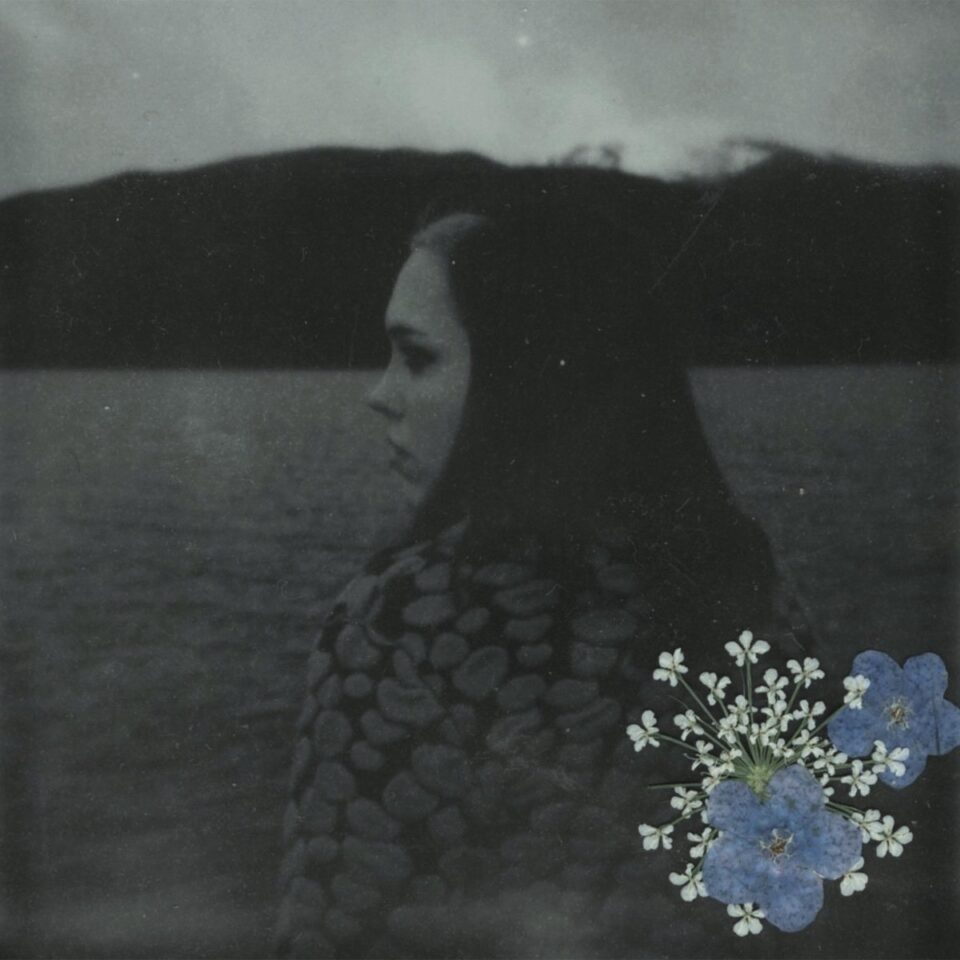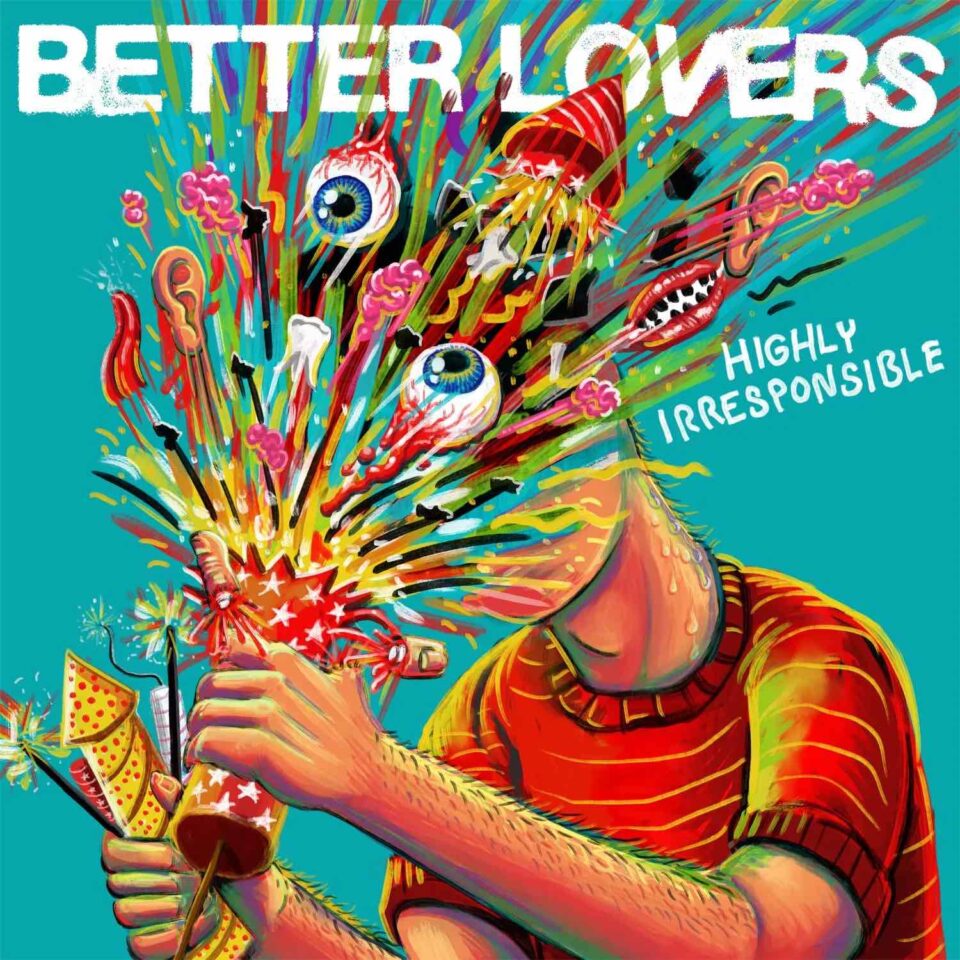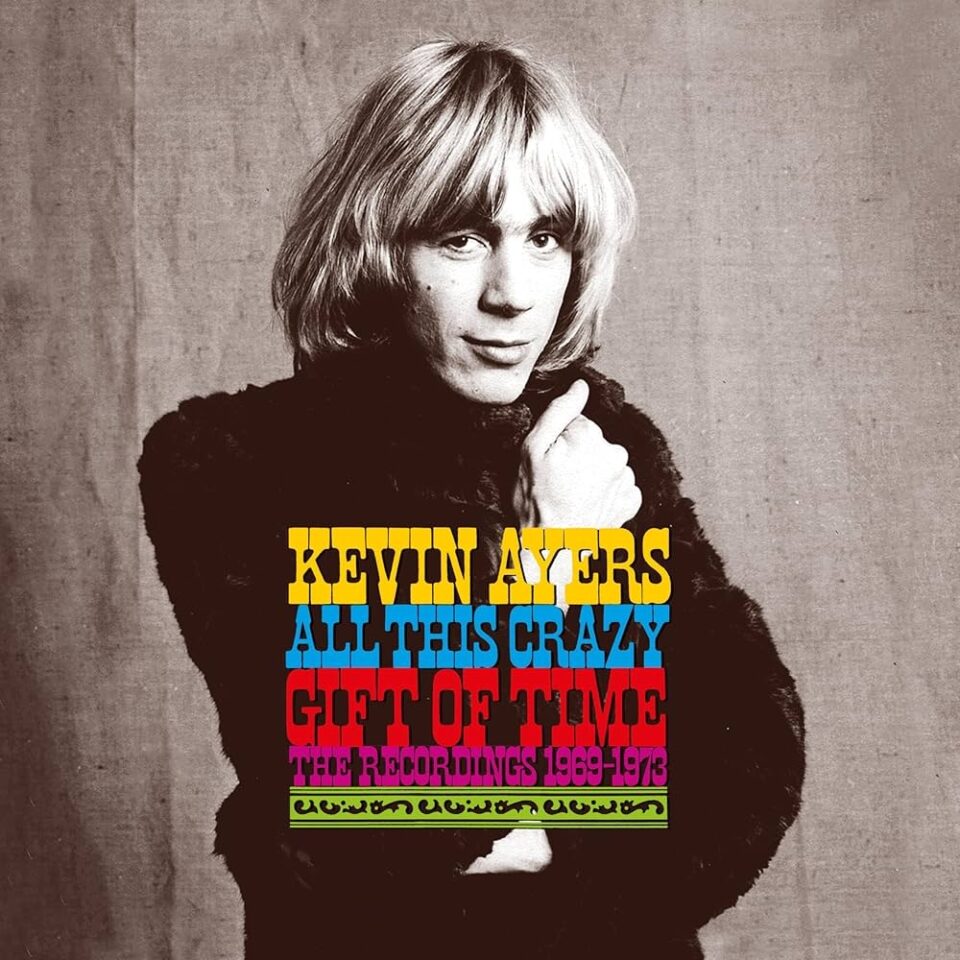This article appears in FLOOD 12: The Los Angeles Issue. You can purchase this special 232-page print edition celebrating the people, places, music and art of LA here.
“LA is like a bottomless well of everything—scenes and music and culture,” says Ty Segall. “I've been cruising around in Southern California for the better part of 25 years, and I feel like I've barely scratched the surface.”
Sure, the singer-songwriter, multi-instrumentalist, and producer was born in Palo Alto; and yes, his early records were made when he was a member of the Bay Area garage rock scene, but Southern California is where Segall’s heart, soul, and muse all truly reside. Raised in Glendale, Silver Lake, and Laguna Beach, Segall cut his musical teeth playing house parties in Laguna Beach and at The Smell in Downtown LA, and he’s recorded six acclaimed studio albums—not to mention a veritable boatload of LPs, EPs, and 7-inches as a member of Fuzz, GØGGS, The C.I.A. and Wasted Shirt—since returning to Los Angeles in 2013, with another already on the way.
His latest, 2021’s brilliant Harmonizer, was entirely conceived and cut at Harmonizer Studios, the recording spot that Segall recently built in the Topanga home that he shares with his wife Denée. Though more synth-oriented than his previous releases, Harmonizer nonetheless still contains plenty of the scuzzy guitars and sunshine-drenched vocals that have characterized his finest work, and which can be directly traced to his Southern Californian musical upbringing.
Ahead of the unveiling of his newest record Hello, Hi—also recorded at his home studio, and slated for a July 22 release—Segall tells us about Harmonizer, his SoCal roots, and the never-ending inspiration of life in LA.
You played four shows at the Teragram Ballroom back in September. How did that go?
Oh, the shows were great. It was a little nerve-racking because the [COVID] numbers were just kind of rounding a corner, but it was still kind of like, “What’s going on? Is it going to stay like this?” So, it was odd to go back into a room with 600 people and be like, “OK, here we go!” But after the first show, it was like, “Oh yeah—this is good!”
“LA just feels like home. It always has been in some form; but I feel like over the past four or five years we’ve been really accepted as an LA band, even though I started to kind of have a bit of success when I was living in San Francisco.”
Does it feel different to you playing shows in LA than anywhere else?
Yeah—LA is the hometown now. It just feels like home. I mean, it always has been in some form; but I feel like over the past four or five years we've been really accepted as an LA band, even though I started to kind of have a bit of success when I was living in San Francisco.
As a kid growing up in Laguna Beach, was your life mostly centered around the beach? Or would you manage to get up to LA?
I did get up to LA once I started hanging out with people who had cars. And then I got a driver's license and it was all over; basically, I was up in LA any chance I could get!
What did LA have for you in those days that Laguna Beach didn't?
By the time I was 16, we would just go to The Smell—I mean, maybe I'm over-exaggerating by saying once a week, but I don't think so. My high school band played there and I got to know [Smell owner] Jim Smith; I got to know a lot of people in the music community around that time. And it felt like a very special thing, and it really informed a lot of what I held dear to my heart—what I wanted to be a part of as a music community member, and just a person in general.

Why did the Smell scene have such a big impact on you?
Because everything I experienced before that was, either you went to a big show—a giant band at some big giant place—or you had house parties in Laguna. And I was lucky enough to have a really awesome resource with my friend Mikal [Cronin]; his parents were really cool with us throwing shows at his house in Laguna. But besides those two kind of drastic poles, The Smell was like this amazing opportunity to be like, “Oh, you can organize things with a bunch of different people to make cool stuff!” It was like, this is how it should be, you know? So I consider that period, The Smell era, one of the foundational pillars of my musical mind. And then going to San Francisco for college and meeting other people that turned me on to totally different things, that was a huge part of my musical journey as well.
“The Smell was like this amazing opportunity to be like, ‘Oh, you can organize things with a bunch of different people to make cool stuff!’ It was like, this is how it should be, you know?”
You moved back to LA in 2013. Why did you return?
I came back to be closer to my family. It was kind of up in the air at the time about whether I was going to stay, or what my real plan was. But I always frequented Northeast Los Angeles—like Silver Lake and Echo Park—as a kid, and I knew a bunch of people over there, so that's just kind of where I ended up.
How did moving back impact your music?
Well, in San Francisco, you lived in this little shoebox apartment, and that was your space. When I moved back to LA, it was more affordable back then, and all of a sudden I could get a house at the same price as the two rooms I was renting in an apartment in San Francisco. So I just set up a studio in the house and it was like being a kid in a candy store, like the first time I ever went to Disneyland or something. It was like, “Oh my God, this is how you make stuff!” So in a nutshell for me, LA kind of exemplifies having the space to make things. I feel like it's different now because it's getting really, really expensive. But for so long, you could get a house and play drums in your garage and, you know, work on stuff. I mean, in San Francisco, you have to wait, like, “OK, I have this practice space booked tomorrow from 3:00 p.m. to 5:00 p.m. So I can go lay down the drums then.” [Laughs.]
Also, I'm really just influenced by my friends and interactions with people. Walking around LA and being in LA and talking to your friends that live down here, that obviously influences everything you make. One of the coolest parts of being in LA is there's countless scenes. It's not like there's one scene and everybody knows each other. In San Francisco, it was more like that; but here it's like a giant sea of so many different scenes going on, and you're learning about new things all the time.
You moved from Echo Park to Topanga about three years ago. What motivated that change?
Topanga always reminded me of the Laguna I grew up knowing. Laguna is way different now; the wealth there has unfortunately taken a lot of the cool, weird stuff away. But I feel like Topanga is very open about protecting its weirdness and not developing too much and keeping it pretty low-key. And it's really gorgeous and there's a total vibe; it’s still got the weirdo factor, for sure, and I'm a total weirdo at heart. [Laughs.] So I feel at home there. I mean, I'm a lifer now, to be totally real with you. After living in Topanga for a couple of months, I was like, “This is my spot.” I’m a surfer, I feel most at home by the water, and I'm 10 minutes from the beach. But you're also just up the hill enough that you have peace and quiet.
“One of the coolest parts of being in LA is there’s countless scenes. It’s not like there’s one scene and everybody knows each other.”
How often do you surf?
I try to surf a couple of times a week when I’m at home and I'm not running around. But if it’s summer and things are mellow and I’m not super-slammed, I’ll be in the ocean almost every day.
Did you start surfing when you were a kid, or was that something that came later?
I learned how to surf when I was nine. It's very Laguna Beach, you know? If you’re a kid in Laguna and you don’t know how to surf, you’re going to get made fun of.
Same with skating, I imagine.
Yeah, but skating…something about falling on concrete just never appealed to me. I mean, I can skateboard; if I'm at my friend's house and I’ve got to go pick up some groceries or something, I'll hop on the skateboard, but that's about it. Last time I dropped in on a bowl, I ate so much shit, I was like, “This isn’t fun.” [Laughs.] Falling in water is way better.

Was it always part of the plan to build a studio in your new place when you moved to Topanga?
Yeah, when we were looking for places, it was essential that I had something to work with in some way, to either build a spot or convert something. Once we found the place, from planning to finish, building the studio took the better part of a year. There was a lot of planning, because you only get one shot at it. We had built another one at my old house and there were some definite things I wanted to change, so it was a lot of figuring out how to make those changes.
Since it’s part of your house, do you just roll out of bed every day and start making music?
Yeah, and that's the good and bad thing, because I'm the kind of person that will just go in there every day, all day. So I have to make rules for myself; I have to force myself to not go immediately into the studio and maybe go on a bike ride or go to the beach, go do something.
“I just love the scope of how much varying feelings there are in LA; if you’re driving around, you can really just go to so many different-feeling places.”
Was Harmonizer the first complete record you made in the studio?
It was kind of a maiden voyage, yeah. There was a lot of experimenting with the treatment of the rooms for Harmonizer. A lot of rooms have a note that is super-resonant, like an A or something, and you have to find it and treat it. If you want a super-ringy, bombastic thing, just take some treatment away; and if you want to have a dead room sound, just put it back up. It’s fun, and it’s kind of an ongoing thing, which is cool because you just get to know the room more and more.
It's a really cool sounding record. How much of that was the result of the new studio, and how much of it was sonic tricks that you already had in your pocket?
I'm going to give way more credit to Cooper [Crain], the engineer, than the room; he’s such a fantastic engineer. I think a couple of tunes have the room sound, but I wanted it to be pretty tight, almost like void of air, like an absence of room sound. So it’s funny; we had this brand new room and it sounded really cool, but it was like, “Yeah, but let's not use it for this.” [Laughs.]
Do you get most of your creative inspiration these days from being in Topanga? Or are there other parts of LA that are still really inspirational for you?
To be honest with you, I really get the most inspiration from just experiencing life around LA, whatever that is. It’s really random for me; it'll be like, I went to this place and I had this conversation with this person and then it turned into a song, or I saw an odd interaction across the street and it turned into a song. I just love the scope of how much varying feelings there are in LA; if you're driving around, you can really just go to so many different-feeling places. LA is that kind of a city where you can be downtown in this legitimate city, and then 20 minutes later you're sitting on the beach. That’s LA in a nutshell, and I take a lot of inspiration from that. FL










